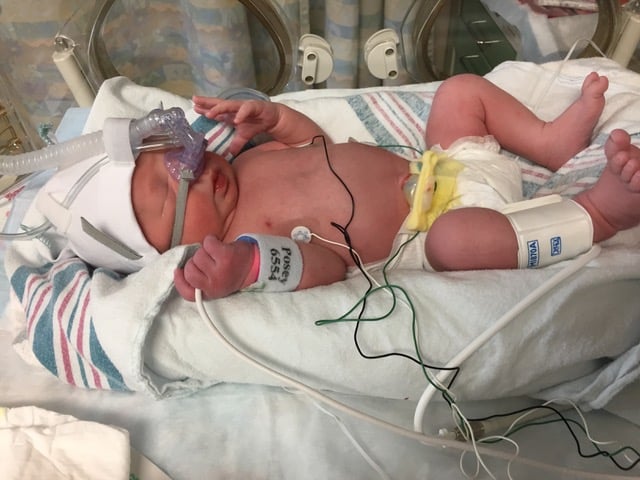American Heart Association© NRP Certification Classes in Palo Alto

American Academy of Pediatrics© NRP
Course Name: NRP (Neonatal Resuscitation Program)
Online Course Length: 3 hours (At your home.)
Skills Testing: 3 hours (At one of our sites: San Francisco, Concord, or Milpitas.)
Price: $280 (This includes the online NRP class, skills testing, and NRP card.)
Certification: American Academy of Pediatrics© NRP certification card.
When: NRP Courses are offered about 16 times per month
Where: Courses are offered in San Francisco, Concord, and Milpitas
Card Issuance: You will receive the card on day of class.
Upcoming NRP Classes in the Bay Area
Neonatal Resuscitation Excellence: NRP Classes in Palo Alto
In the delicate world of newborn care, rapid and knowledgeable intervention can make the difference between life and death. Neonatal Resuscitation Program (NRP) classes provide healthcare professionals with the skills and confidence needed to address emergencies that arise during childbirth and in the immediate moments after delivery. In Palo Alto, California, NRP classes provided by reputable organizations like the American Academy of Pediatrics (AAP) equip medical personnel with the latest evidence-based practices. This article explores the significance of NRP certification, the offerings of these classes in Palo Alto, and their impact on neonatal care within the community.
Understanding the Importance of NRP Certification
The birth of a child is a momentous occasion, but it can also present unforeseen challenges. Neonatal emergencies, such as birth asphyxia, meconium aspiration, and respiratory distress, demand immediate attention and skilled intervention. NRP certification ensures that healthcare providers possess the knowledge and expertise required to resuscitate and stabilize newborns in distress.
The American Academy of Pediatrics’ Commitment to Neonatal Care
The American Academy of Pediatrics (AAP) is a leading authority on pediatric healthcare, dedicated to promoting the health and well-being of infants, children, and adolescents. Recognizing the critical importance of neonatal resuscitation, the AAP developed the NRP curriculum, which is widely regarded as the standard of care for newborn resuscitation worldwide.
Comprehensive Offerings of NRP Classes in Palo Alto
NRP classes in Palo Alto are designed to meet the diverse needs of healthcare professionals involved in newborn care, including obstetricians, pediatricians, neonatologists, midwives, nurses, and respiratory therapists. The curriculum is comprehensive and interactive, combining didactic instruction with hands-on practice and simulation-based learning.
Impact on Neonatal Care in Palo Alto
The impact of NRP certification extends beyond individual healthcare providers—it directly benefits newborns and their families in Palo Alto and surrounding areas. By equipping healthcare professionals with the knowledge and skills needed to respond effectively to neonatal emergencies, NRP classes contribute to improved outcomes and reduced morbidity and mortality rates for newborns.
Conclusion
In Palo Alto, California, NRP classes play a vital role in ensuring the safety and well-being of newborns during the critical moments following birth. By providing healthcare providers with the knowledge and skills necessary to address neonatal emergencies, these classes contribute to improved outcomes and increased patient safety. Through collaboration, education, and innovation, the American Academy of Pediatrics and its partners in Palo Alto are making a difference in neonatal care, ensuring that every newborn receives the best possible start in life.
FAQs
Who should attend NRP certification classes in Palo Alto?
NRP certification classes are primarily designed for healthcare professionals involved in the care of newborn infants, including neonatologists, pediatricians, obstetricians, nurses, midwives, and respiratory therapists.
How long does an NRP certification course typically last?
NRP certification courses usually span over one to two days, depending on the training provider. The course includes a combination of didactic instruction, skills practice, and simulated scenarios to ensure comprehensive learning and skill mastery.
Is there a renewal requirement for NRP certification?
Yes, NRP certification is typically valid for two years, after which healthcare professionals are required to undergo NRP renewal courses to maintain their certification. Renewal courses often include updates on guidelines and hands-on skills practice.
